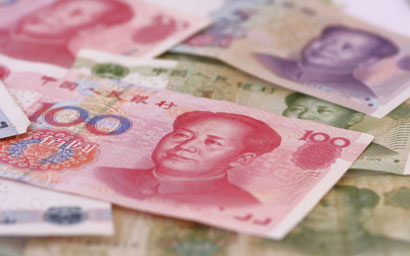The fallout between Washington and Beijing continues to deepen after the US Treasury “determined that China is a currency manipulator”, marking a new chapter in trade tensions between the two sides.
The pronouncement came after China’s yuan fell below 7 to the US dollar for the first time since 2008. The People’s Bank of China (PBoC) said the drop was due to “unilateralism and trade protectionism measures and the imposition of tariff increases on China.”
As volatility returned to the fray – US stocks posted their worst day of the year on Monday, August 5 – investors have been left pondering the US response.
“With the US labelling China a currency manipulator, could the next step be a Trump attempt to push for US dollar intervention?” commented George Efstathopoulos, a multi asset portfolio manager at Fidelity International. “Perhaps not a too distant scenario, given the way the US-China trade war has escalated in the past year,” he added.
The latest move opens the door to a currency war, “which would certainly up the ante in the trade war,” Efstathopoulos added.
Meanwhile, JP Morgan Asset Management (JPMAM), said branding China as a “currency manipulator” is a fresh blow in the hopes for a trade resolution between the world’s two largest economies.
Tai Hui, chief market strategist for Asia Pacific at JPMAM said: “This [currency manipulation] announcement overnight is expected to hit risk appetite further, following a sharp drop in Wall Street yesterday.
“Export oriented markets in Asia, including Taiwan, South Korea and Hong Kong, are likely to be at the forefront of this. Sentiment in China is also likely to be affected, even though there are plenty of companies with limited export exposure.
“Meanwhile, this raises the possibility of Asian and emerging market central banks loosening monetary policy to support growth, which would be a positive on Asia and EM sovereign debt. Hence, in the very near term, we would expect investors to take a more defensive position in raising their allocations in fixed income versus equities,” added Hui.
What next?
According to Chi Lo, a senior economist for Greater China at BNP Paribas Asset Management, the PBoC is likely to carry on with a policy of no large renminbi depreciation.
“Since the renminbi is now better supported by fundamentals, with the current account surplus recovering towards 2.0% of GDP and portfolio inflows continuing due to the addition of Chinese assets in the international stock and bond benchmarks, I would not be surprised to see it strengthen back to below 7 again once the dust is settled,” said Lo.
©2019 funds europe





